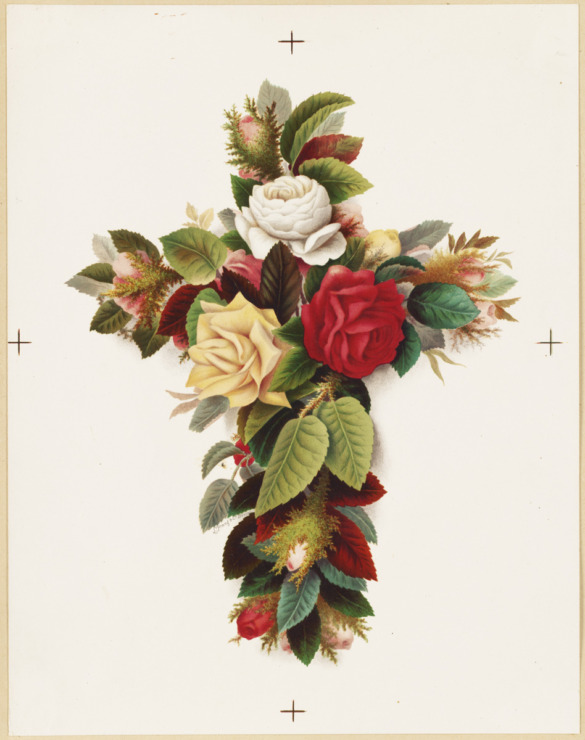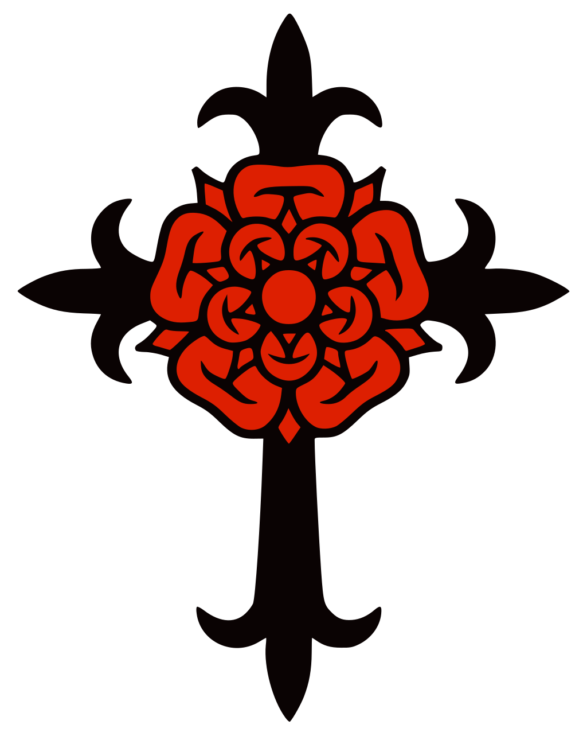To the Rose upon the Rood of Time
Red Rose, proud Rose, sad Rose of all my days!
Come near me, while I sing the ancient ways:
Cuchulain battling with the bitter tide;
The Druid, gray, wood-nurtured, quiet-eyed,
Who cast round Fergus dreams, and ruin untold;
And thine own sadness, whereof stars, grown old
In dancing silver sandalled on the sea,
Sing in their high and lonely melody.
Come near, that no more blinded by man’s fate,
I find under the boughs of love and hate,
In all poor foolish things that live a day,
Eternal beauty wandering on her way.
Come near, come near, come near—Ah, leave me still
A little space for the rose-breath to fill!
Lest I no more hear common things that crave;
110The weak worm hiding down in its small cave,
The field mouse running by me in the grass,
And heavy mortal hopes that toil and pass;
But seek alone to hear the strange things said
By God to the bright hearts of those long dead,
And learn to chaunt a tongue men do not know.
Come near; I would, before my time to go,
Sing of old Eire and the ancient ways:
Red Rose, proud Rose, sad Rose of all my days.
-WB Yeats
Enjoy Artistic Representations of “To the Rose upon the Rood of Time” by WB Yeats

Cross of Roses by Olive E. Whitney, 1861-1897.

Rosy Cross by RootofAllLight, 8 April 2020.
Listen to these Readings of “To the Rose upon the Rood of Time”
Listen to these Musical Interpretations of “To the Rose upon the Rood of Time” by WB Yeats
About W.B. Yeats
William Butler Yeats was born in 1865 in Dublin into a family of the Protestant Anglo-Irish landowning class. He lived in Dublin and London during his growing up years. He was very much affected by the politics of the time, as he was a young adult when the protestant minority in power began to be displaced by the predominantly Catholic nationalist movement.
Yeats studied law for a time but eventually moved to London to study art. He was an accomplished playwright, and a founder of the Irish Theatre which was later to become the Abbey Theatre. While he is better known for his poetry, Yeats was awarded the Nobel Prize for Literature in 1923 more for his theatrical works than his verse. He was the first Irishman to be awarded the prize.
His first collection of poems was published in 1889, and there is strong evidence of the influence of Edmund Spenser and Percy Bysshe Shelley. Later, his poetry became more rooted in realism and the physical, with influence of Ezra Pound and William Blake apparent. Common themes in his poetry include mysticism, spiritualism, the occult and Irish identity and nationalism.
Yeats was appointed to the Irish senate in 1922. He was married, but had an ongoing relationship of sorts with a former love, Irish activist and revolutionary Maud Gonne. Known as one of the greatest poets of the 20th century, Yeats died in 1939.
That’s it for To the Rose upon the Rood of Time!
BUY ‘HOW TO WRITE A FORM POEM’ NOW!
